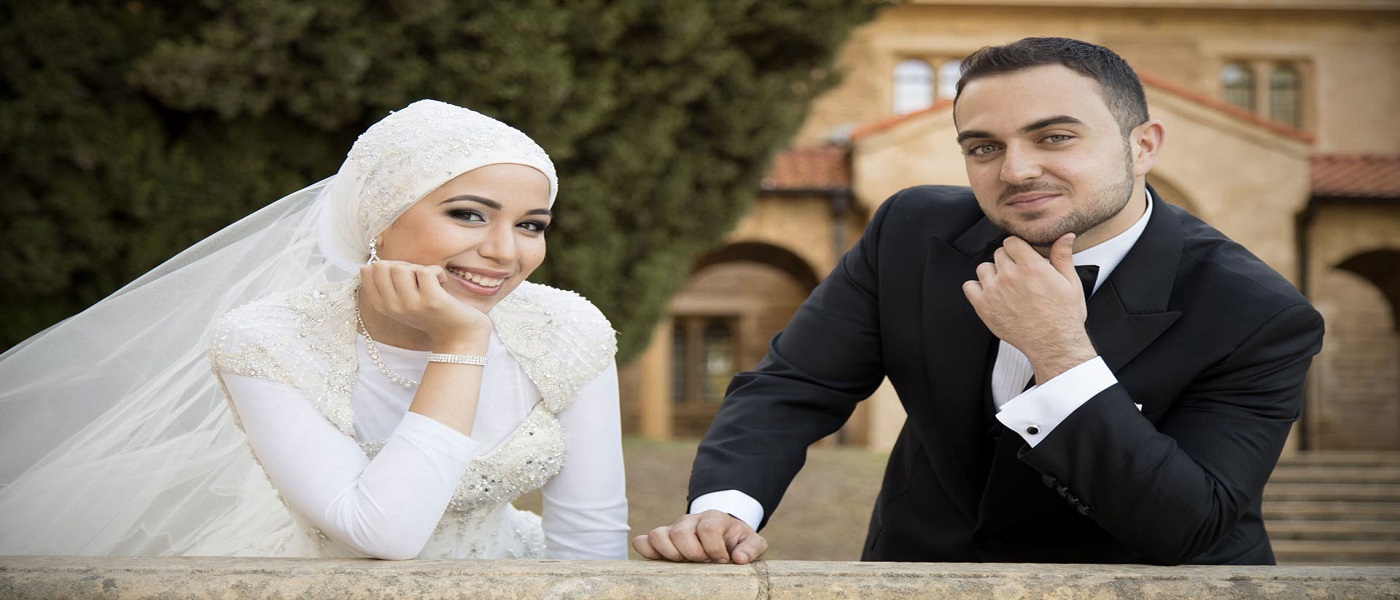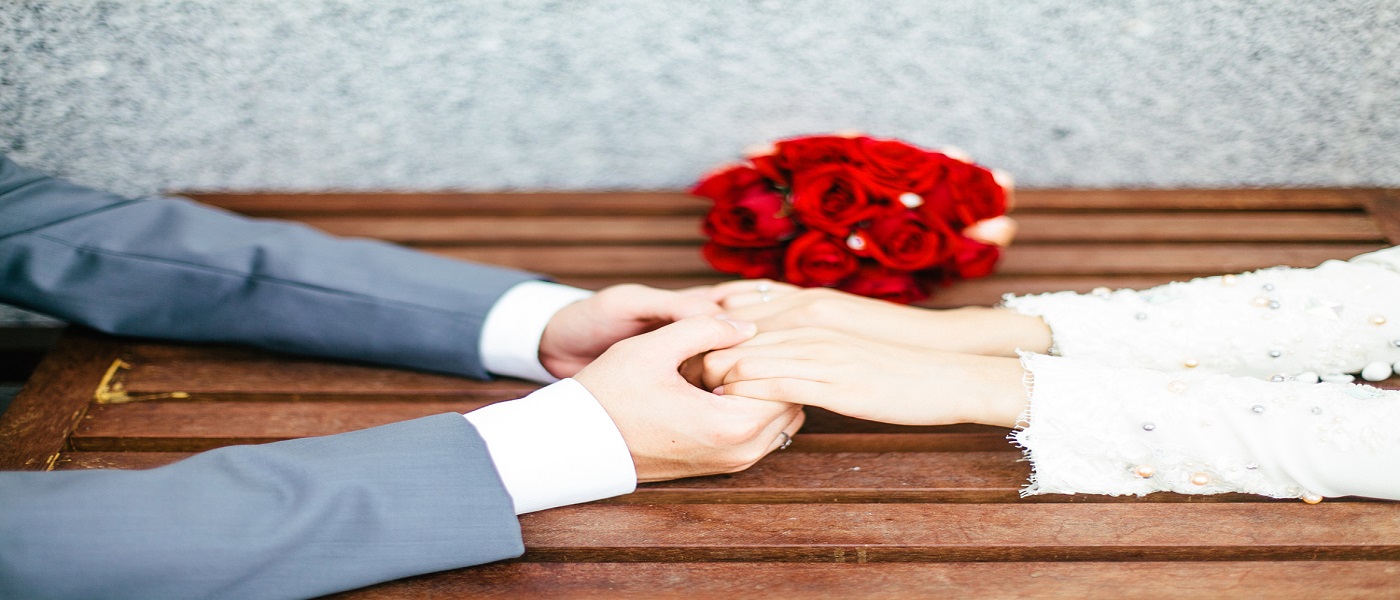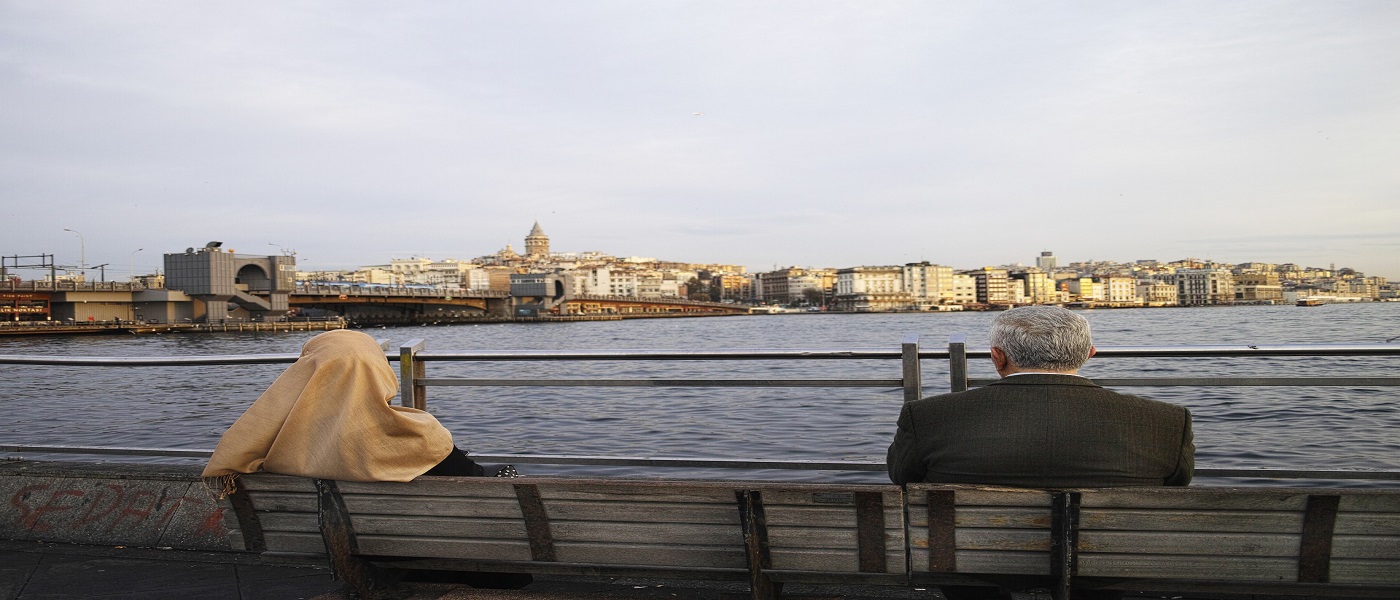

Why aren’t Muslim women allowed to marry non-Muslims?
There is a consensus among almost all Islamic jurists according to which Muslim women are forbidden to marry non-Muslims. This is clearly stated in Surah Baqarah: “do not marry polytheistic men [to your women] until they believe. And a believing slave is better than a polytheist, even though he might please you” (2:221).
This prohibition applies to both temporary and permanent marriage. But what can be the wisdom behind this Islamic rule?
Choosing a Compatible Mate to Marry for Muslim Women
In many narrations (Hadiths) [1] and some verses of the Quran (2:221); (24:26), Muslims are advised to marry those who are equivalent to them. Being equivalent mostly means to be similar in faith and religion; however, it also includes being alike in culture, wealth, education, and family values. Right after stating the prohibition on the marriage with non-Muslims in Surah Baqarah (2:21), the reason behind this is uncovered (2:221).
In this kind of marriage, the Muslim will be most probably influenced by the polytheistic beliefs (which are in direct contradiction to Islamic teachings) of his/her partner. In such a condition, if the Muslim accepts those beliefs, he/she will be surely destined to enter Hell, and even if he/she remains Muslim, the conflicts between the couple will make their life a real Hell [2].
Then, for Muslim women, marrying a non-Muslim man (whether disbeliever (Kafir) or a believer in other Abrahamic religions) is undoubtedly against the divine guidelines and Islamic teachings, therefore, must be avoided.
Marriage Affects One’s Religious Life
As soon as one gets married, he/she is not fully independent anymore to decide for everything in life. Many habits and interests will be influenced by the preferences of one’s partner and even some of his/her beliefs. Getting married to a non-Muslim means to be seriously exposed day and night to the practices and beliefs of a religion other than Islam, or even to feed the mind with anti-religious thoughts.
This might in the first place hinder one from practicing Islam, then make him/her indifferent to Islamic beliefs and principles, and finally end in converting to a non-Muslim! And, women are more prone to this change: “You (Muslim men) are allowed to marry who doubt in their religious beliefs, but Muslim women are not; since the woman is influenced by her husband and he makes her follow his religion” [3].
Islam completes the teachings of the previous religions [4], therefore it does not allow Muslim women, who have taken the straight path with the help of divine guidance, to deviate and join disbelievers (Kafir) or the followers of other religions by getting married to a non-Muslim and consequently to be supervised by non-Muslims and depend upon them.
Fulfillment of the Wife’s Rights in a Marriage
Islam considers certain rights for the wife over her husband. Treating gently, keeping respect, helping in household chores, forgiving her major mistakes, and honoring her are the duties of a husband in Islam [5]. Besides, men are required to pay the marriage portion (Sedaq) and the living expenses (Nafaqah) to their spouses [5].
These rights will be most probably ignored in a marriage with a non-Muslim man of whether an Abrahamic religion or any other religions and this is another reason to ban Muslim women to marry non-Muslims.
Children’s Education and the Following Generations
To many children, fathers are heroes or at least good enough samples to follow in life. To some, fathers are only a member of the family. In any case, fathers play a predominant role in the education of children.
Hence, a non-Muslim father educates children based on his beliefs, and he surely affects the characteristics, attitudes, and religious beliefs of his children and more generally the following generations. This way, Muslim women married to non-Muslims might find their children disbelievers (Kafir) or followers of other religions, which will be really regretful.
Some Rulings …
The only way Muslim women might marry a non-Muslim man is that he converts to Islam before marriage.
If the formula (Nikah) of a marriage contract is pronounced before the conversion of the man, the marriage contract will be void. If the man converts after this void marriage, the formula (Nikah) still needs to be repeated since the man had not been Muslim during the previous formula (Nikah) [i].
Not getting married to a non-Muslim man is such important that if non-Muslim women (whether disbeliever (Kafir) or a believer in other Abrahamic religions) deliberately join Muslims or immigrates to Muslim communities, and if their faith is examined, It is forbidden (Haram) to send them back to their disbeliever family if they want to stay with Muslims. In this case, Muslim women are not any more lawful to their non-Muslim husband, his husband neither (60:10).
Notes:
[i] See Risalah Amaliyah for more details and the rulings.
References:
- S. H. al-Amili, “Wasail al-Shia”, vol. 14.
- A. H. Tayyib, “Atyab-ul-Bayan fi Tafsir-il-Qur'an”, (2: 221).
- M. B. Majlesi, “Bihar al-Anwar”, vol. 103, p. 377.
- M. B. Majlesi, “Bihar al-Anwar”, vol. 76, p. 7
Share This Article

Are Women in Islam Inferior to Men?
The issue of women in Islam has always been a topic prone to misunderstanding and distortion, partly due to propaganda and media that misrepresent Islam and partly due to misbehavior of some Muslims or pseudo-Muslims, like ISIS and al-Qaeda, which are taken to represent the real visage of Islam.
Those who accuse Islam of considering a lower rank or status for women, mostly forget in their debates the differences between women and men which are necessitated by order of creation. Contrary to the popular myth, Islam has never acknowledged the superiority of men over women but has taken into account their differences and set appropriate regulations and guidelines based on them [1].
Women in Islam and Men Are of the Same Spirit
One of the issues addressed in the holy Quran is the creation of woman and man. Unlike some sacred books saying that: “woman was created out of an inferior stock to that of man or Adam's wife was created from one of his left-side parts of the body”, the Quran explicitly states in several verses that woman was created from nature of man, and from the same essence: “who created you from a single soul, and created its mate from it” (4:1), (7:189).
This demonstrates that women in Islam and men are of the same origin; hence, neither of them is superior to the other in the first place. Besides, men and women in Islam are each created for the other: “they are a garment for you, and you are a garment for them.” (2:187), and a woman is designated as the source of solace and comfort for man’s heart (30:21) which highlights her importance.
Universe Is Created to Serve Both Women and Men
It is directly and clearly stated in the Quran that the earth and the sky, the clouds and the winds, plants, and animals, all have been created for “mankind” [i]. It means that everything in the universe is there to serve every single human being and not only men.
Women in Islam Can Reach Spiritual Excellence
A woman is created to pave the way for improvement, like a man, and to reach the perfection that a human being deserves. The Quran has firmly declared that the afterlife reward and nearness of God do not depend upon one’s gender, but on his/her faith and deeds.
In verses (3:195) and (4:124), it is specified that whoever does acts of blessing and is a believer “whether male or female," God will give them an abundant reward.
The Quran also demonstrates the women’s role by emphasizing the importance of the company of a great and pious woman alongside every great and pious man (11-12: 66), (28: 7). The wives of Adam and Abraham, and the mothers of Moses and Jesus (PBUH) are the examples of great women mentioned in the Quran. There is, therefore, no superiority between men and women in Islam in the spiritual sense.
Menstruation is not a Weakness
Among the Jews and Arabs of the pre-Islamic age, there was a belief that a woman is filthy and weak during her menstrual period, so, she was isolated and avoided until she became clean. The Quran says: “They ask you concerning [intercourse during] menses. Say, ‘It is hurtful.’ So keep away from wives during the menses...”(2:222).
It means that menstruation is harm leaving the woman’s body, but it is not deplorable at all. Instead, menstruation is a preliminary to receive a blessing from God, a miracle that takes place inside a woman’s womb and places paradise at the feet of mothers [2].
Women in Islam Can Attain the Superior Social Status They Deserve
Men and women have undoubtedly “equal” rights in Islamic ideology, but the point is that their rights are not “similar”; in some conditions, women are given more rights while in other cases men have more rights. Every Muslim, female or male, is encouraged in Islam to seek knowledge.
The Prophet (PBUH&HP) said, “The acquisition of knowledge is compulsory for every Muslim, whether male or female” [3]. Education, learning and gaining knowledge are therefore duties assigned to every woman as much as to every man.
Regarding economic rights also, men are not superior to women unlike what is reported in the media and many beliefs. The misunderstanding about the inheritance, for example, is caused by ignoring the whole rights and duties each of men and women have and the balance between those rights.
That is why in the Quran, people are told: "Do not covet the advantage, which Allah has given some of you over others. To men belongs a share of what they have earned and to women a share of what they have earned." (4:32) [4].
Contrary to the false impression that says Islam has restricted women to stay at home and does not permit them to appear in the society, in a truly Islamic society, there must be women in many social positions. There must be, for instance, women physicians and women nurses for some special treatments that women need; or, women teachers as girls require some teachings and guidance when they reach the age of puberty.
The last word …Are Women Inferior to Men in Islam?
In Surah Nisa, it is said that: “Men are the managers of women, because of the advantage Allah has granted some of them over others, and by virtue of their spending out of their wealth” (4:34). Some use this verse to argue that Islam has given superiority to men, but the interpretation of these words will clarify the wisdom behind:
A family is known to be the smallest social unit. It requires, therefore, a supervisor or manager like any other social unit. This duty is generally attributed to the man in the family, mostly because men are physically stronger than women and they are less affected by their emotions [ii].
Moreover, the woman might also be given this responsibility after her husband’s death. Knowing the man as the supervisor of the family does not prove any inherent superiority in men, but assigns him the heavy responsibility of providing for his family needs from which women are exempted [5].
It is now clear that Islam has never inhibited women nor given them an inferior position to men; instead, it has undoubtedly caused the status of women to be improved by firstly recognizing their full personhood, and then describing the goal of their creation and the capacities and rights they have.
Notes:
[i] (2 :29), (24:32-33), (45:13)
[ii] Exceptions might exist, but, the general case is always considered to set the regulations and guidelines.
References:
- women position in Islam
- M. Reyshahri, "Mizan al-Hikma," T. 22691".
- M. B. Majlesi, "Bihar al-Anwar," vol. 1, p. 177.
- N. Makarem Shirazi, “Tafsir Nemooneh”.
- women in islam
- Women Inferior to Men
Read More

Are Women in Islam Respected as Much as Men?
Contrary to popular belief, women in Islam has been empowered and respected. We previously discussed the Islamic viewpoint on the rights of women and the position of women in the society. Knowing that the justice considers equal rights for both men and women, it revealed that Islam had given “equal” -not similar- rights to women and men. Here, we provide more evidence on the Islamic approach to demonstrate that females are greatly respected in Islam.
Women in Islam and Love for Daughters
In the pre-Islamic era in Arab countries, females were considered as weak members of the society, and they were an economic burden especially during times of famine since they were supposed to be less useful. If a girl was born to a family, the father became disappointed (“And when one of them is informed of [the birth of] a female, his face becomes dark, and he suppresses grief.” (16:58)) and afraid of that girl being held captive by the invaders in the future, which would bring shame to the family. So, they used to bury baby girls alive (“Should he keep it in humiliation or bury it in the ground?” (16:59)).
Of course, Islam prohibited this practice by the divine commands in the Quran as well as the deeds and sayings of Prophet Muhammad (PBUH). The reaction of the Quran to this act is: “evil is what they decide” (16:59) and adds: “do not kill your children out of poverty; We will provide for you and them” (6:151).
This act is so blamed and hated in Islam that in Surah Takwir it is said on the Day of Judgement, the first issue that will be dealt with before everything else will be burying the baby girls alive: “For what sin she was killed” (81:9). This demonstrates how invaluable females are in Islam.
Islam also attempts to show the position of the daughter in the family and how she brings blessings to it. In this regard, Prophet Muhammad (PBUH) has said: “God bless the father who has daughters. Daughters are lovely and bring divine blessing, and sons are like good news. Daughters are enduring good deeds (Baqiyat al-Salihat)” [1].
He (PBUH&HP) wondered why people were unhappy and sorry for having a daughter and said that daughters are like fragrant flowers for him to smell [2]. Imam Sadiq (AS) said that: “Daughters are your good deeds and sons are your blessings. You will be asked for the blessings you have been given, but you will be only rewarded for your good deeds” [3].
This narration emphasizes how important female children and women in Islam are and warns us to treat them well. Prophet Muhammad (PBUH) has advised buying gifts for the family members and said that this act would be rewarded similar to giving charities. Then, he (PBUH) adds: “Firstly give your daughters their gifts, and then your sons. Because whoever makes her daughter happy is similar to the one who has set one of the children of Ishmael free (AS)” [4].
Islam Respects the Wives
The respect and importance given to daughters are also pointed out about women in Islam and especially wives such that according to Prophet Muhammad (PBUH&HP) the best of men is the one who is the best to his wife. And, he (PBUH) is the best man who other men should follow in act and behavior towards their wives [5].
Another manifestation of the respect for the wives is the Islamic point of view on polygamy. Islam does not approve of polygamy; rather it has restricted polygamy by setting some terms and conditions on that matter.
Islamic Advice on Respect for Mothers
Mothers are of high value in Islam because of their efforts such as how they withstand the difficulties during the pregnancy, the care and protection they provide after giving birth to the baby, the selfless sacrifices they make so that the child could grow up in the most comfortable condition and with the best education.
The rights of mothers are even known to be superior to those of fathers [9]. According to Prophet Muhammad (PBUH&HP), one can never pay back the rights of the mother [6].
Last word …
This amount of concern about females from childhood to motherhood and the considerations for the equal rights for women in Islamic teachings all the indicate the respect and attention paid to women in this religion.
References:
- M. Nuri, "Mustadrak al-Wasa'il", vol. 15, p. 115, T. 17700.
- "Makarim al-Akhlaq Supplication", p. 219.
- Shaykh Al-Kulayni, “Al-Kafi”, vol. 6, p. 6.
- Shaykh Al-Amili, "Wasa'il al-Shi'a", vol. 15, p. 227.
- Shaykh al-Saduq, "Man la yahduruhu al-Faqih", vol. 3, p. 443.
- H. T. Nuri Ṭabarsi, “Mustadrak al-Wasail”, vol. 15, p. 203.
Read More

